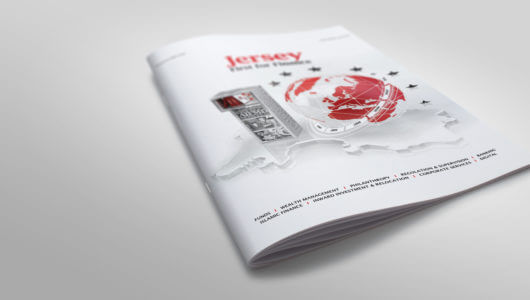It is a testament to the private client industry in Jersey that in 2017 the STEP Jersey Branch celebrated 25 years in operation. During that time the committee has had eight chairpersons (including most recently myself) and has grown and developed – with some 1,200 members – to be the largest Branch globally outside of London.
STEP Jersey is very active as a Branch and nowhere more so than in the field of training and education for its students and members. In a typical year STEP Jersey will run nine monthly seminars and an annual conference, which together provide over half of members’ annual CPD (Continuing Professional Development) requirement. In addition we have an annual dinner at which the student awards are presented. We have been delighted with the way industry has supported us through the sponsorship of these awards which reward our top students for their success in the STEP professional examinations. As we all know, a well-trained and qualified workforce is the backbone which supports our industry.
With that thought in mind, the Branch committee felt that supporting students would be a fitting way to mark our 25th anniversary year and so instigated a bursary programme to mark the occasion. There are currently two financial services degree courses available in Jersey – the BA (Hons) Financial Services offered by University College Jersey at Highlands and the BSc (Hons) International Financial Services offered by Jersey International Business School. Until last year, however, there had been were no bursaries specific to students studying for those courses. At our 25th AGM in July 2017, three students were awarded the sum of £4,000 each towards their studies and we very much look forward to following their progress.
Members of the Branch committee also sit on a number of STEP worldwide boards – Simon Morgan (VISTRA) is the current Vice-Chair of STEP Worldwide and Tony Pitcher (LGL Trustees) is a Council member – as well as committees and local working parties focusing on matters such as policy and innovation within the private client industry.
Contributing to these initiatives helps the committee in a number of ways including, not least, providing a direct means of communicating with the Government about developments in private client matters and facilitating a forum to discuss whether Jersey should respond by way of an amendment to a law or even the introduction of a new law. The financial support provided by STEP to the Jersey Finance trusts law working party in relation to the Hastings Bass amendments a few years back, is just one example of this and led to Jersey being the first jurisdiction to introduce a statutory Hastings Bass test. The Branch has also contributed to the draft Trusts (Amendment No 7) (Jersey) Law which is likely to come into force later this year and will clarify the legal position on a number of important issues.
As well as having a keen interest in Jersey’s competitive position, it is right to acknowledge that the Branch feels a huge responsibility to uphold Jersey’s status as a leading private client jurisdiction and is ever mindful not only of balancing the interests of settlors, beneficiaries and trustees but also safeguarding the Island’s reputation. Examples of this include in the field of insolvency provisions, where – following recent case law – it was felt that rather than simply introducing an insolvency regime for trusts alone, the wider legal position in Jersey should first be considered. Equally, whilst there is considerable merit in revisiting and rebranding Jersey’s non-charitable purpose trust regime, this is not something that can be dealt with without a thorough review. In the current political climate any changes could easily be misconstrued as being motivated by a desire to restrict information flows and consequently go against Jersey’s efforts to be viewed as a transparent and cooperative jurisdiction.
Being alert to regulatory changes and having a constructive dialogue with the Island’s regulator – the Jersey Financial Services Commission (JFSC) – is also high on the committee’s list of priorities. Not only does it ensure that the JFSC has access to industry professionals with whom it can ‘stress-test’ proposed reforms but it also ensures the committee can give its members early notice of changes that may impact their clients and businesses and monitor preparedness within industry. Such an approach worked well in 2017 with regard to updating the register of beneficial ownership and in 2018 there is already good engagement between industry and the JFSC in regard to the National Risk Assessment. Effective collaboration with other professional organisations within the Island, such as the Jersey Association of Trust Companies (JATCo), is also a must and helps to mitigate the impact of volunteer fatigue.
With this in mind, last year the committee decided to establish two sub-committees, one being focused on policy matters and the other being focused on events and training. The hope is that this will allow more members to become involved with STEP in Jersey and also allow the Branch to extend its reach.
There has certainly been no period, which I can remember, where the Branch’s input and contribution has been sought more frequently. Over the past couple of months alone I have been approached and asked to canvass views on several issues including the UK Consultation Paper on the taxation of commercial property, the EU Code of Conduct’s position on substance based taxation and most recently changes to corporate income tax returns.
Increasingly then, there is recognition that in pulling together and coordinating on these matters, Jersey can demonstrate that its private client industry is not only resilient but also versatile in the face of change; whether it be driven by international pressures, technology, competition or other factors.
STEP Jersey believes that it has an important role to play in achieving this objective and the committee strives to provide a good service to its members and the wider finance industry. Later this year we hope to launch a new social media presence which I am sure will help us enhance communications with our members as well as receive their valued feedback.
Naomi Rive is a Group Director and Head of Family Office at Highvern.
Naomi is Chair to STEP in Jersey and sits on the Jersey Finance Trusts Law Working Party. She is also a former adjunct-professor of trusts at the Jersey Institute of Law.
A lawyer by training, Naomi was called to the English Bar in 1999 and re-qualified as a Jersey Advocate in 2003. During her time as a Partner of a leading offshore law firm, Naomi provided structuring and regulatory advice to high net worth individuals, international private banks and financial services businesses.
Naomi works closely with Highvern’s international client base and their independent legal, tax and investment advisers, to ensure establishment and implementation of robust and sustainable private wealth and corporate structures. Naomi has considerable experience of providing trustee services in connection with complex trust structures and sitting on the board of directors of private trust companies and private investment companies.

